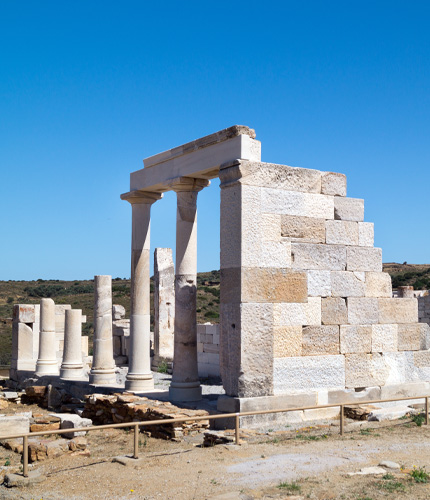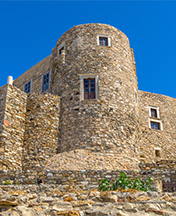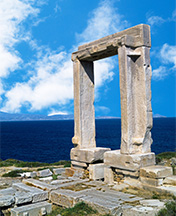Naxos is the largest island in the Cyclades, famous for its rich history and beautiful architecture. According to mythology, Zeus, king of the Gods, grew up in Naxos, hidden away from the savagery of his father, Saturn, as well as his son Dionysus, the God of wine. Dionysus loved Naxos so much that he made it a fertile land, full of vines, producing wine of excellent taste and quality. Historically, Naxos was the most important cultural center of all the Cyclades during the ancient period, around 4.000-1.000 B.C. The Thracians were the first inhabitants of Naxos and it is believed that the island owes its name to the leader of the Thracians named Naxos. Then, the Macedonian Empire, the Ptolemy of Egypt, the Rhodes and, in 41 B.C., the Roman Empire passed through Naxos. Christianity appeared on the island in the 1st century A.D. The Venetians marked another important period in the history of Naxos, with the Ottoman occupation followed and finally, Naxos officially becoming part of the liberated New Greek State in 1831.













